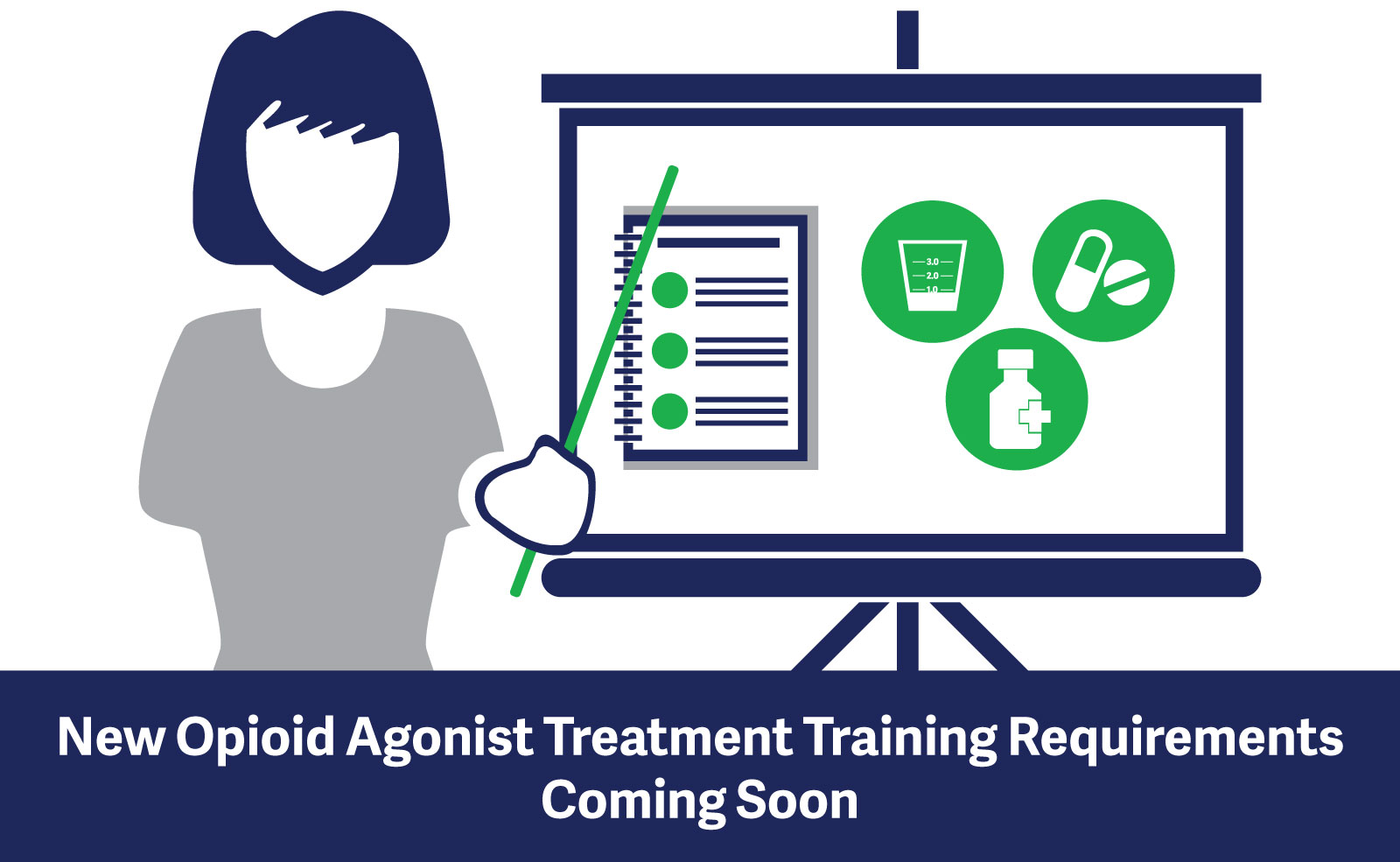New Opioid Agonist Treatment Training Requirements Coming Soon
Starting January 1, 2019, new Opioid Agonist Treatment training requirements come into effect.
A new opioid agonist treatment training program for community pharmacy has been developed aimed at reducing stigma and expanding pharmacists’ knowledge about methadone, buprenorphine/naloxone and slow-release oral morphine.
|
Registration for the Opioid Agonist Treatment Compliance and Management Program is now open Register Here |
In 2017, in consultation with the Ministry of Health, the BC Centre for Substance Use (BCCSU), the BCPhA and other stakeholders, the College updated Professional Practice Policy-66 Opioid Agonist Treatment (PPP-66) to include the addition of buprenorphine/naloxone and slow release oral morphine maintenance treatments as new opioid agonist treatment (OAT) options. These options augment the College’s existing methadone maintenance treatment (MMT) requirements.
The College’s current MMT training program does not address buprenorphine/naloxone and slow release oral morphine maintenance treatments. To address that gap, and provide additional education for pharmacists and pharmacy technicians involved in delivering care to patients with opioid use disorder, a new training program is needed.
Opioid Agonist Treatment Compliance And Management Program
With support from the Ministry of Health, the Ministry of Mental Health and Addictions, and Health Canada’s Substance Use and Addictions Program, and working closely with the First Nations Health Authority, the BC Pharmacy Association has developed the Opioid Agonist Treatment Compliance And Management Program (OAT-CAMPP) as a tool to help registrants address the province’s current opioid crisis. The training program aligns with PPP-66 and will replace the College’s current MMT training program.
The program includes training on buprenorphine/naloxone, methadone and slow release oral morphine maintenance treatments, as well as on opioid use disorder itself. Additionally, with pharmacists often on the front lines of the opioid crisis, this training program also aims to improve the experience and of people receiving treatment. It includes a patient-centred approach, discussing lived experiences of patients and communication strategies to reduce stigma and increase patient engagement.
“We believe that the new training program is an important step in supporting pharmacists in caring for people living with opioid use disorder. By increasing pharmacists’ knowledge of methadone, buprenorphine/naloxone and slow-release oral morphine treatment, and providing education on reducing stigma and improving patient engagement, we believe that the training will have a positive impact on the opioid overdose crisis and help save more lives.”
- Bob Nakagawa, Registrar
The program is now available and includes both online and in-person components.
For additional information about the program and to register, visit the BC Pharmacy Association’s Opioid Agonist Treatment Compliance and Management Program page.
Transition Period to Meet New Opioid Agonist Treatment
The new training requirements will be effective starting on January 1, 2019. A transition period will take place up until March 31, 2021 during which PPP-66 will require pharmacy managers, staff pharmacists, relief pharmacists and pharmacy technicians employed in a community pharmacy that provides services related to buprenorphine/naloxone maintenance treatment, methadone maintenance treatment or slow release oral morphine maintenance treatment to complete either the College’s existing MMT training program or the BCPhA’s new OAT-CAMPP course.
Pharmacy technicians will only need to complete the online component of OAT-CAMPP. The content of the in-person workshop focuses primarily on clinical cases that are not as relevant for pharmacy technicians.
By March 31, 2021, the College’s MMT training program will no longer be available. Completion of the OAT-CAMPP course will be needed to fulfill the training requirement outlined in PPP-66.
During the transition period, registrants practicing in a community pharmacy that provides pharmacy services related to opioid agonist treatment are strongly encouraged to complete the OAT-CAMPP program as soon as practical.
Declaration of Completion
Once a pharmacist or pharmacy technician has successfully completed the College’s Opioid Agonist Treatment requirements, they can submit a declaration of completion through the College’s eServices website.
Learn more about how to submit declarations at bcpharmacists.org/declarations.

 Share
Share



